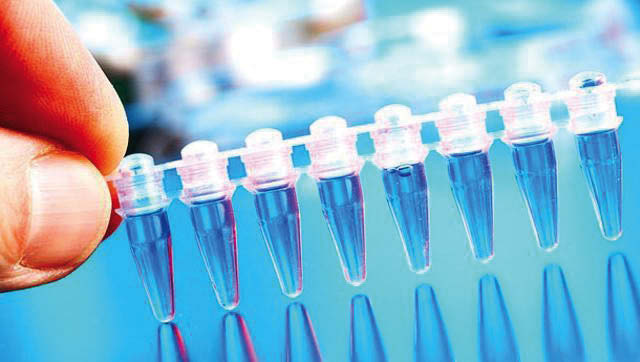
WASHINGTON (TIP): This could well be a breakthrough in detecting cancer at an early stage. Researchers from the National Institute of Health (NIH) in the US have concluded that a simple blood test may be used to diagnose five types of cancers –colon, lung, breast, stomach and womb –at early stages. The team has identified a striking signature in tumour DNA that occurs in these types of cancers.
They also found evidence that this methylation signature may be present in many more types of cancer. The specific signature results from a chemical modification of DNA called methylation, which can control the expression of genes like a dimmer on a light switch. Higher amounts of DNA methylation (hypermethylation), like that found by researchers in some tumour DNA, decreases a gene’s activity.
Based on this advance, researchers hope to spur development of a blood test that can be used to diagnose a variety of cancers at early stages, when treatments can be most effective. “Finding a distinctive methylation-based signature is like looking for a spruce tree in a pine forest. It is a technical challenge to identify, but we found an elevated methylation signature around the gene known as ZNF154 that is unique to tumours,” said Laura Elnitski from NIH.
For the study, researchers developed a series of steps that uncovered telltale methylation marks in colon, lung, breast, stomach and endometrial cancers. They showed that all the tumour types and subtypes consistently produced the same methylation mark around ZNF154.
“Finding the methylation signature was an incredibly arduous and valuable process. These findings could be an important step in developing a test to identify early cancers through a blood test,” said Dan Kastner from NIH.
Even when they reduced the amount of methylated molecules by 99%, the computer could still detect the cancer-related methylation marks in the mixture. Knowing that tumours often shed DNA into the bloodstream, researchers calculated the proportions of circulating tumour DNA that could be found in the blood, researchers said. The findings were published in The Journal of Molecular Diagnostics.
Diet experts also suggest that eating a high-fibre diet in early adulthood, which included plenty of fruit and vegetables, could lower the risk of breast cancer in later life by 12 to 19% compared to those who ate much less or no dietary fibre at all. An American study last year suggested that prostate cancer patients can improve their chances of survival by following a Mediterranean-style diet full of fruit, vegetables and fibre.
Source: PTI





Be the first to comment